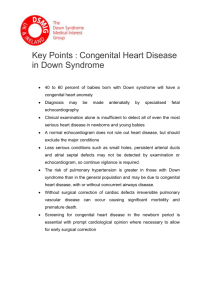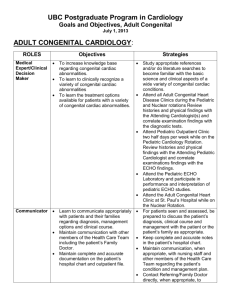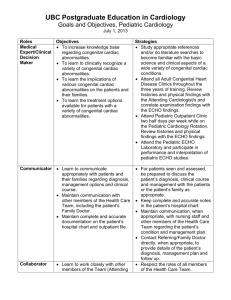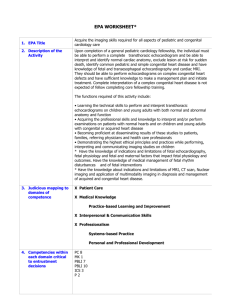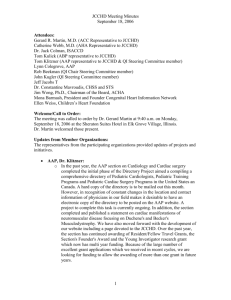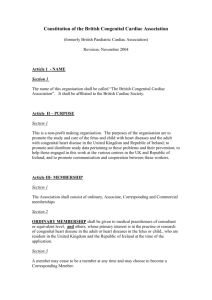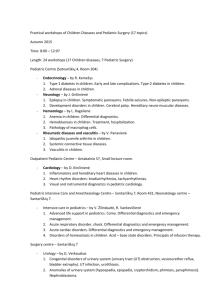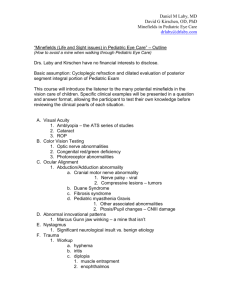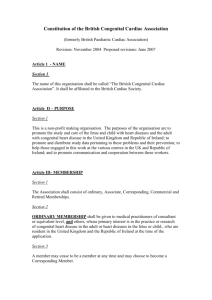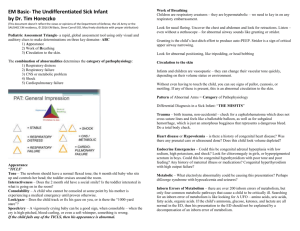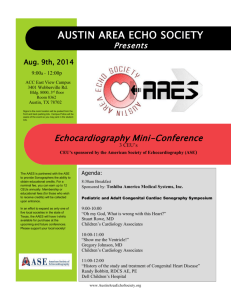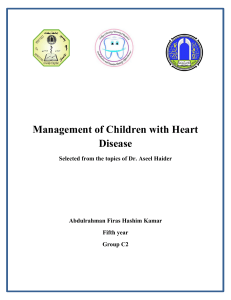At the Heart of the Matter: History of the Congenital Heart Program at
advertisement
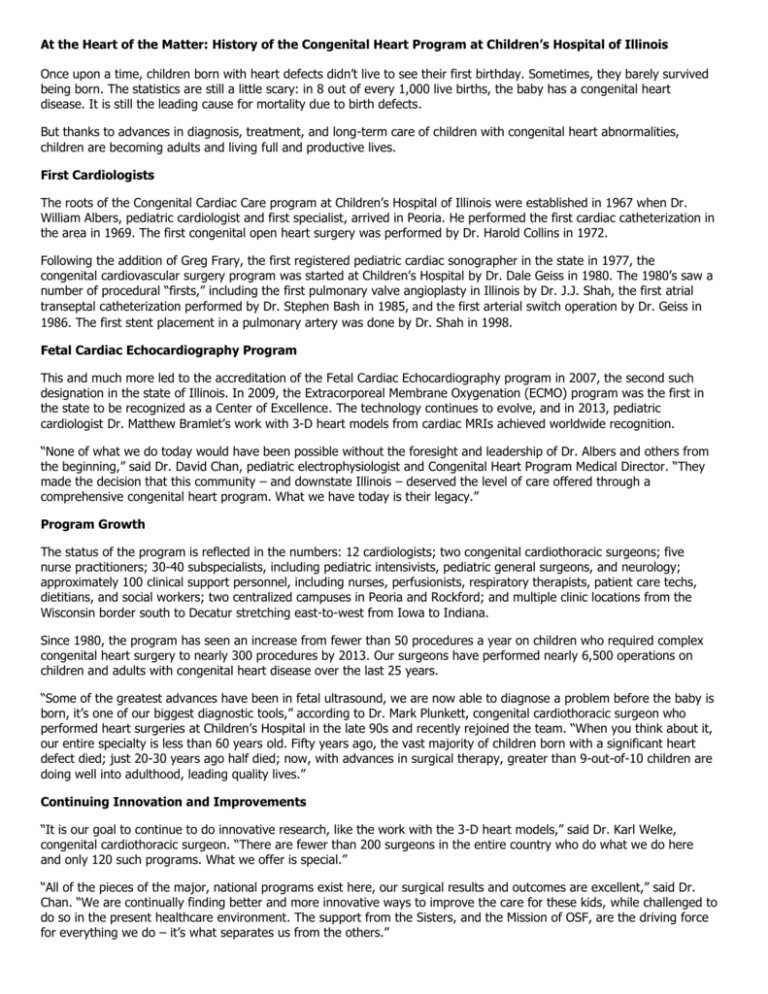
At the Heart of the Matter: History of the Congenital Heart Program at Children’s Hospital of Illinois Once upon a time, children born with heart defects didn’t live to see their first birthday. Sometimes, they barely survived being born. The statistics are still a little scary: in 8 out of every 1,000 live births, the baby has a congenital heart disease. It is still the leading cause for mortality due to birth defects. But thanks to advances in diagnosis, treatment, and long-term care of children with congenital heart abnormalities, children are becoming adults and living full and productive lives. First Cardiologists The roots of the Congenital Cardiac Care program at Children’s Hospital of Illinois were established in 1967 when Dr. William Albers, pediatric cardiologist and first specialist, arrived in Peoria. He performed the first cardiac catheterization in the area in 1969. The first congenital open heart surgery was performed by Dr. Harold Collins in 1972. Following the addition of Greg Frary, the first registered pediatric cardiac sonographer in the state in 1977, the congenital cardiovascular surgery program was started at Children’s Hospital by Dr. Dale Geiss in 1980. The 1980’s saw a number of procedural “firsts,” including the first pulmonary valve angioplasty in Illinois by Dr. J.J. Shah, the first atrial transeptal catheterization performed by Dr. Stephen Bash in 1985, and the first arterial switch operation by Dr. Geiss in 1986. The first stent placement in a pulmonary artery was done by Dr. Shah in 1998. Fetal Cardiac Echocardiography Program This and much more led to the accreditation of the Fetal Cardiac Echocardiography program in 2007, the second such designation in the state of Illinois. In 2009, the Extracorporeal Membrane Oxygenation (ECMO) program was the first in the state to be recognized as a Center of Excellence. The technology continues to evolve, and in 2013, pediatric cardiologist Dr. Matthew Bramlet’s work with 3-D heart models from cardiac MRIs achieved worldwide recognition. “None of what we do today would have been possible without the foresight and leadership of Dr. Albers and others from the beginning,” said Dr. David Chan, pediatric electrophysiologist and Congenital Heart Program Medical Director. “They made the decision that this community – and downstate Illinois – deserved the level of care offered through a comprehensive congenital heart program. What we have today is their legacy.” Program Growth The status of the program is reflected in the numbers: 12 cardiologists; two congenital cardiothoracic surgeons; five nurse practitioners; 30-40 subspecialists, including pediatric intensivists, pediatric general surgeons, and neurology; approximately 100 clinical support personnel, including nurses, perfusionists, respiratory therapists, patient care techs, dietitians, and social workers; two centralized campuses in Peoria and Rockford; and multiple clinic locations from the Wisconsin border south to Decatur stretching east-to-west from Iowa to Indiana. Since 1980, the program has seen an increase from fewer than 50 procedures a year on children who required complex congenital heart surgery to nearly 300 procedures by 2013. Our surgeons have performed nearly 6,500 operations on children and adults with congenital heart disease over the last 25 years. “Some of the greatest advances have been in fetal ultrasound, we are now able to diagnose a problem before the baby is born, it’s one of our biggest diagnostic tools,” according to Dr. Mark Plunkett, congenital cardiothoracic surgeon who performed heart surgeries at Children’s Hospital in the late 90s and recently rejoined the team. “When you think about it, our entire specialty is less than 60 years old. Fifty years ago, the vast majority of children born with a significant heart defect died; just 20-30 years ago half died; now, with advances in surgical therapy, greater than 9-out-of-10 children are doing well into adulthood, leading quality lives.” Continuing Innovation and Improvements “It is our goal to continue to do innovative research, like the work with the 3-D heart models,” said Dr. Karl Welke, congenital cardiothoracic surgeon. “There are fewer than 200 surgeons in the entire country who do what we do here and only 120 such programs. What we offer is special.” “All of the pieces of the major, national programs exist here, our surgical results and outcomes are excellent,” said Dr. Chan. “We are continually finding better and more innovative ways to improve the care for these kids, while challenged to do so in the present healthcare environment. The support from the Sisters, and the Mission of OSF, are the driving force for everything we do – it’s what separates us from the others.”
